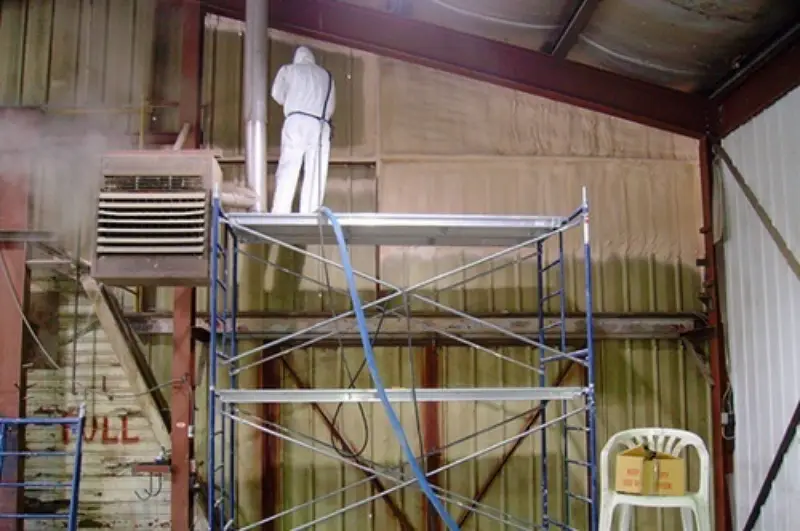The Environmental Impact of Commercial Building Insulation
Insulation in commercial buildings plays a significant role in reducing the environmental impact associated with energy consumption. By effectively insulating the building envelope, companies can minimize the need for heating and cooling systems, resulting in lower energy consumption and reduced greenhouse gas emissions. Moreover, high-quality insulation materials like fiberglass or cellulose are often made from recycled or renewable resources, further contributing to sustainability efforts.
In addition to energy efficiency, the insulation used in commercial buildings can also have a positive impact on the environment by reducing waste. Many insulation materials are designed for durability, with a lifespan that can extend beyond the life of the building itself. This longevity minimizes the need for replacement or maintenance, thus reducing the amount of waste generated from insulation materials over time. By choosing insulation materials with a low environmental impact and long lifespan, commercial buildings can significantly contribute to a greener future.
The Role of Insulation in Noise Reduction and Soundproofing in Commercial Spaces

In commercial spaces, excessive noise can often be a significant issue. Whether it’s the constant hum of machinery, the chatter of employees, or the echoing sounds of customer conversations, noise can create a disruptive and unproductive environment. This is where the role of insulation in noise reduction and soundproofing becomes crucial.
Insulation acts as a barrier to minimize the transfer of sound waves from one space to another. It works by absorbing and dampening the noise, preventing it from spreading throughout the building. By installing insulation in walls, floors, and ceilings, commercial spaces can effectively reduce noise levels, creating a more peaceful and comfortable environment for occupants. Not only does this improve productivity and concentration among employees, but it also enhances the overall experience for customers and visitors. Additionally, proper insulation can help maintain privacy in sensitive areas such as meeting rooms and offices, ensuring confidential conversations stay within the intended space.
Addressing Fire Safety Regulations with Commercial Building Insulation
Commercial building insulation serves a vital role in ensuring fire safety regulations are met. The use of fire-resistant insulation materials can help delay the spread of fire, allowing for more time to evacuate occupants and for firefighters to respond. Proper insulation can also prevent the penetration of smoke and toxic fumes, reducing the risk of inhalation-related injuries during a fire incident.
One common type of fire-resistant insulation used in commercial buildings is mineral wool. Made from natural or synthetic fibers, mineral wool insulation is renowned for its high melting point and excellent fire resistance. When installed correctly, it can create a barrier that limits the spread of flames and helps maintain the structural integrity of the building. Additionally, the use of intumescent coatings, which expand when exposed to high temperatures, can provide an extra layer of protection against fire and heat transfer. By adhering to fire safety regulations and using suitable insulation materials, commercial buildings can significantly enhance their overall safety and protect the lives of occupants in case of a fire emergency.
How Insulation Can Improve Indoor Air Quality in Commercial Buildings
When it comes to the indoor environment of commercial buildings, air quality is a vital aspect to consider. Proper insulation plays a significant role in improving the indoor air quality. By effectively sealing the building envelope, insulation prevents the infiltration of outdoor pollutants and contaminants into the indoor space. This is particularly important in urban areas where pollution levels can be high. Insulation also helps to minimize the entry of dust, allergens, and other irritants, creating a healthier and more comfortable indoor environment for building occupants.
In addition to preventing the entry of external pollutants, insulation can also contribute to the reduction of indoor air pollutants generated within commercial buildings. Many building materials and furnishings emit volatile organic compounds (VOCs) which can negatively impact air quality. Insulation with low VOC emissions can help mitigate these concerns, creating a cleaner and healthier indoor environment. Furthermore, proper insulation reduces the need for excessive ventilation, which can bring in more outdoor pollutants. This ultimately leads to improved indoor air quality and better overall well-being for occupants in commercial buildings.
Long-Term Cost Savings and Return on Investment with Commercial Building Insulation
Commercial building owners and managers are constantly seeking ways to maximize cost savings and improve the return on their investments. One effective strategy that has gained considerable attention in recent years is the installation of insulation in commercial buildings. The long-term cost savings and return on investment offered by commercial building insulation make it an attractive option for many property owners.
Insulation in commercial buildings can significantly reduce energy consumption by decreasing heat transfer and maintaining comfortable indoor temperatures. This translates into lower heating and cooling costs throughout the year. By installing insulation, building owners can save a substantial amount of money on their utility bills, which can make a significant impact on their long-term finances.
In addition to energy savings, commercial building insulation can also contribute to financial gains by improving occupant comfort and productivity. Proper insulation helps create a more stable indoor environment, reducing temperature fluctuations and minimizing drafts. By providing a comfortable workspace, insulation can enhance employee satisfaction and productivity, leading to potential financial benefits for businesses.
The long-term cost savings and return on investment associated with commercial building insulation make it a wise choice for property owners looking to maximize their financial benefits. Not only does insulation reduce energy consumption and utility costs, but it also improves occupant comfort and productivity. As commercial buildings continue to prioritize sustainability and cost-efficiency, insulation stands out as a valuable investment with significant long-term benefits.
